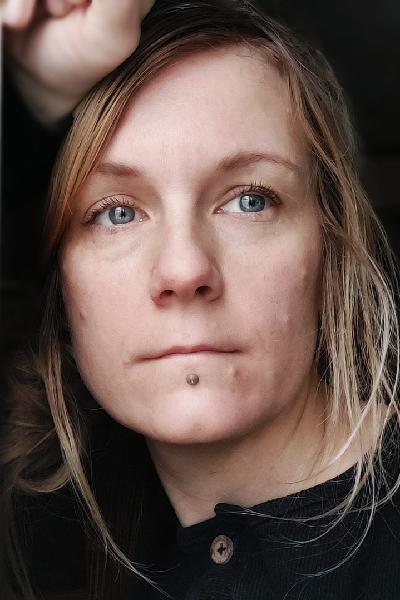Lina Eklund
Senior Lecturer/Associate Professor at Department of Informatics and Media
- E-mail:
- lina.eklund@im.uu.se
- Visiting address:
- Ekonomikum (plan 3)
Kyrkogårdsgatan 10 - Postal address:
- Box 513
751 20 UPPSALA
Download contact information for Lina Eklund at Department of Informatics and Media
More information is available to staff who log in.
Short presentation
Lina Eklund is an Associate Professor in Human-Computer Interaction, a senior lecturer at the Department of Informatics and Media, Uppsala University, and section leader for the Human-Computer Interaction unit.
Biography
As a researcher my focus is on understanding human action and interaction in and with digital technology. I received my doctorate in sociology from Stockholm University in 2013. My PhD thesis was titled The Sociality of Gaming: A mixed methods approach to understanding digital gaming as a social leisure activity and was an explorative, in-depth study of social engagement, relationships, and design in digital gaming, investigated through several case studies utilizing a mixed methods approach.
After my PhD I spent a year as a postdoctoral fellow at the Department of Sociology in Stockholm, which included a scholarship-funded exchange with Mia Consalvo at Concordia University, Montreal, Canada in her interdisciplinary game studies lab.
In 2014, the summer, until the end of 2015, I was invited to and spent 1.5 years at the Department of Sociology at UC Berkeley, California, U.S.
In 2017, I applied for a position as biträdande lektor / lecturer (assistant professor) in Human-Computer interaction at the Department of Informatics and Media at Uppsala University.
Research
Lina Eklunds work focuses on technology in the intimate, and private sphere of life where she studies the relation between technological structure and user agency. Currently, Eklund is leading the research projects Intimate AI: Knowledge from the Machine and Controlling the Uncontrollable: The Impact of Reproductive Health Apps on Experiences of Pregnancy, Healthcare Professionals’ Work and Data Governance.
Publications
Selection of publications
- Reimagining the cycle (2023)
- From Trash to Treasure (2022)
- A Shoe Is a Shoe Is a Shoe (2020)
- Lost in Translation (2019)
- GIFT: Hybrid Museum Experiences through Gifting and Play (2018)
Recent publications
- Kinwork revisited (2023)
- Doing intimate family work through ICTs in the time of networked individualism (2023)
- Critically assessing AI/ML for cultural heritage (2023)
- Reimagining the cycle (2023)
- From Trash to Treasure (2022)
All publications
Articles
- Kinwork revisited (2023)
- Doing intimate family work through ICTs in the time of networked individualism (2023)
- Reimagining the cycle (2023)
- Beyond a dichotomous understanding of online anonymity (2022)
- We Dare You (2021)
- A Shoe Is a Shoe Is a Shoe (2020)
- Digital Gaming and Young People’s Friendships (2019)
- Lost in Translation (2019)
- The crowd in crowdsourcing (2019)
- ‘More like an Arcade’ – The Limitations of Playable Games in Museum Exhibitions (2019)
- Drawing Things Together (2019)
- Do adolescent gamers make friends offline? (2017)
- Played and Designed Sociality in a Massive Multiplayer Online Game (2013)
Chapters
- Critically assessing AI/ML for cultural heritage (2023)
- Narrative and Mechanical Integration (2022)
- Hybrid Museum Experiences (2022)
- Creative Forms of Family Intimacy (2021)
- Children's Rights to ‘Good’ and ‘Bad’ Screen Time (2021)
- Designing for Interpersonal Museum Experiences (2020)
Conferences
- From Trash to Treasure (2022)
- GIFT: Hybrid Museum Experiences through Gifting and Play (2018)
- Social play? (2010)
Other

